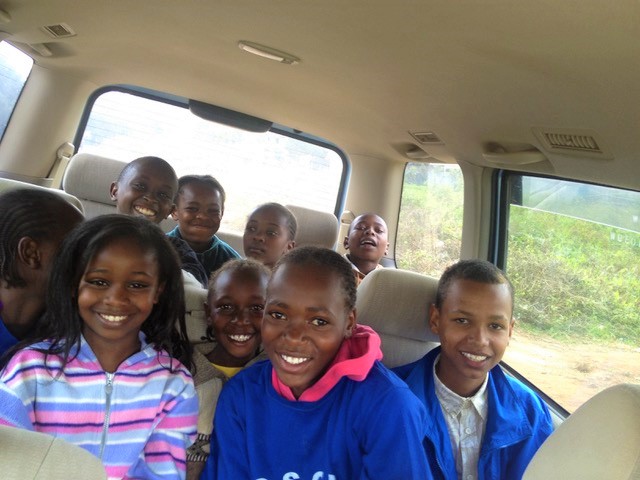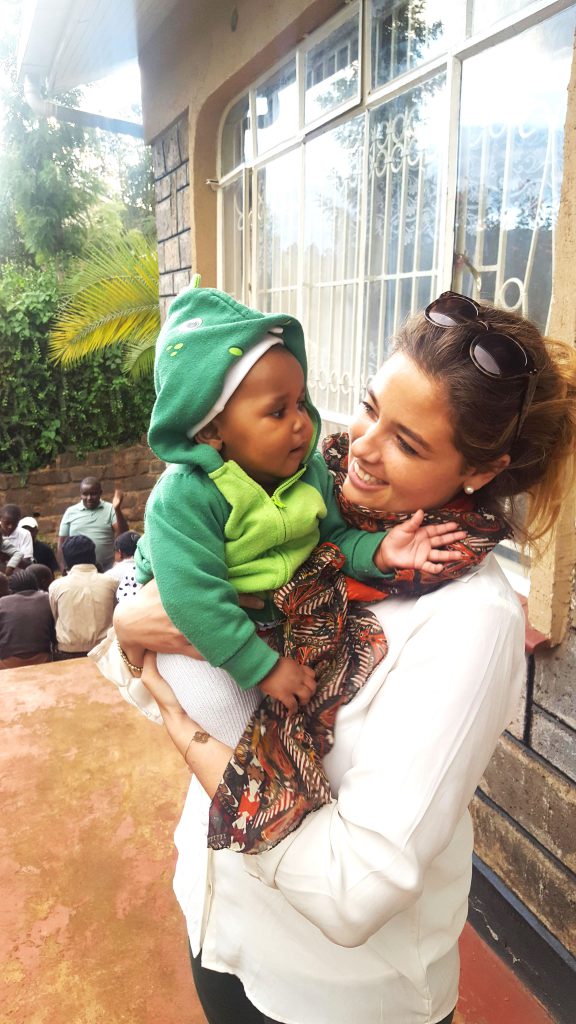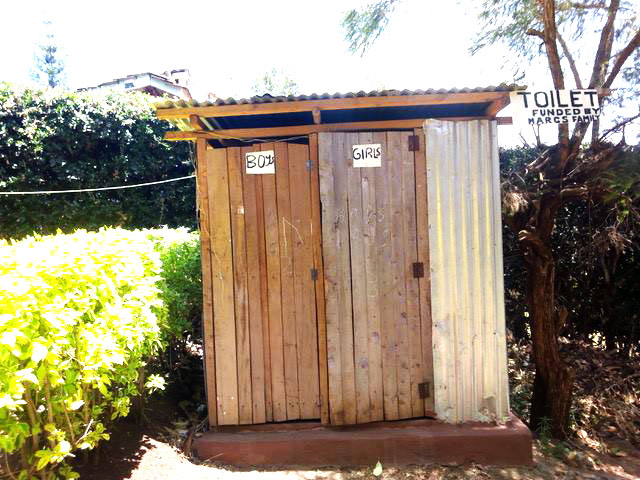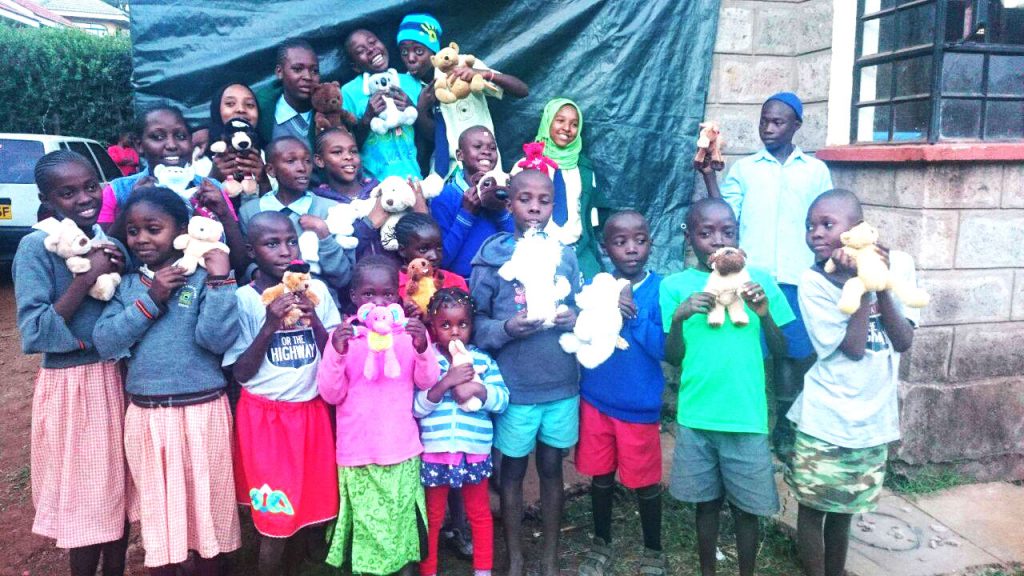Give hope: Building a future for Kenya’s orphans
How one woman’s courage, hope and optimism is changing children’s lives in rural Kenya.
By Rute Costa
Caroline van Roessel is a Humanitarian Aid Worker who speaks six languages and has a Kenyan orphanage under her name. At only 27, she has the power to make most of us feel like we haven’t done anything nearly as meaningful with our lives. Speaking to her is humbling, eye-opening, and restores a little bit of my faith in humanity.
Caroline is on a break now, after two long missions with the International Committee Red Cross (ICRC). “You need that sometimes”, she says. It quickly becomes clear why: her job is far from easy. She tells me about the time she was forced to flee South Sudan after war broke. She spent five days in a bunker with colleagues and locals before they could be evacuated. I ask what was most difficult, and her voice trembles when, watery-eyed, she answers: “[T]o leave the country, and to say to the resident staff: ‘sorry but we are being evacuated, and you are not’. For me, that part was very difficult. I had a hard time”. She chose to go back to South Sudan after the crisis quietened down, to hug those she’d left behind.
Caroline grows roots everywhere she goes, and that sense of connection, although making departures hard, keeps her whole during the time she spends away from home. However, not all is low: her mission is to help improve lives. Alongside distributing food, water and other necessary goods, ICRC works hard to reconnect family links. They find the childrenor the parents who vanished years ago, clouded by war-dust, and bring them back to their loved ones. Caroline speaks of the excitement that grows “when you see that it is actually happening, when you know that – yes! – the parents are there and the child is there – it is very nice!”.

After South Sudan, Caroline completed a mission in the Ivory Coast. But I encourage her to look back to where this humanitarian thread started: “when I was little, people would say I was very ‘kind-hearted’, I don’t know… That I gave away a lot, maybe too much”. With no trace of egotism in her voice, she explains further: “when I was 17 I went to Ghana for a few months to help at an orphanage. I went alone, was living in slums […] the whole humanitarian side came out even more”. In her third year at university in Switzerland, studying Hospitality Management, Caroline found a way of returning to the continent she loves. For six months, she worked in Nairobi for a catering company supplying airlines, and then she found Mary.
“When I was 17 I went to Ghana for a few months to help at an orphanage. I went alone, was living in slums […] the whole humanitarian side came out even more.”
On the Saturday of her second week in Kenya, Caroline decided to get into her company-provided car and drive to an elephant orphanage she had heard about. After realising she was headed the wrong way, she turned to find a girl hitchhiking on the side of the road: Mary, 13, with unusually good English, was trying to get from her village to Ngong but hadn’t made it onto the packed ‘matatu’ bus that drove past without stopping. Caroline thought ‘why not?’ and offered to take her, and Mary volunteered to show her around the market. Done deal. Guided by the young girl, Caroline learnt all about the different types of food and products on offer. Then they had to return: Mary was eager to show the clothes Caroline had got her to “all her brothers and sisters”. She even gave her temporary driver her mother’s number, to keep in touch.

Caroline didn’t have to wait long for a call: on Sunday she was on the road again, this time headed towards Mary’s village. An invitation from Jane, “the mother”, brought her all the way to a house packed with children and barely anything else. As she had suspected, Mary’s many brothers and sisters were orphans who Jane had very kindly taken under her wing. Out of the 27, almost all with backgrounds of abuse, 13 were HIV positive, 2 were mentally ill, and none were going to school. Access to medical care was scarce, so were water and food. They had close to zero support from the community – “little, little”, Caroline repeats the word for emphasis, and I realise I can’t imagine just how little. Years later, her disbelief hasn’t vanished: “I still can’t understand how it worked, but somehow they were surviving”.
“I started just to help a bit at first, became slowly and slowly more involved”, Caroline tells me. Her voice acquires a tone of happy nostalgia when she recounts the time she took the children out to eat chips and drink soda: “They had never had it before, and it was amazing to see that they were having fun”. During her time in Kenya, Caroline spoke about the orphanage to her friends and family, gathered as much help as she could, and, “of course, got very attached to those children”. “Then”, she concludes, “I had to leave”.
And yet, the relationships Caroline built at the orphanage were too strong to allow for total separation: “Since then I’ve been back every three to six months”. The children call her “the white mother” and she has a reputation for wanting everything neat and clean – she chuckles as she says this, but then grows serious and explains how crucial it is that the children help with the day-to-day running of the house, and learn how to look after themselves. The orphanage is now under her name – she explains it makes it easier to manage their bank account, which she also helped create. From the time Caroline got involved, the orphanage has moved to a better house, the children have beds, clothes and a good percentage of them are going to school in a small car that was sponsored by KLM, the Dutch airline.
“A lot of it comes out of my own pocket.”

Apart from the car, however, no support has come from any big corporate entities. Similarly, the social state is passive in supplying any kind of help. All aid has been private, mainly sourced from Caroline’s circle of family and friends. “A lot of it comes out of my own pocket”, she confesses. She’s not trying to victimise herself: instead, she is merely pointing out that this method is not sustainable in the long-term. Everything from rent to school fees, medicines, food and water, costs money. With help from Caroline’s brother, the children planted a vegetable garden and built a chicken shed, which provide them with fresh ingredients and cut food costs. The orphanage is working towards being self-sustainable, but they need funds first.
Caroline gives me a run-down of their ongoing projects and ideas for the future. After having received a large donation of wax, the children made candles and gathered some extra money by selling them. All revenue went towards covering expenses from school fees and medical care. They wish to make and sell enough candles to be able to self-fund their next wax purchase, although they are still far from their goal. Alongside it, they plan to sell handmade shoes (Caroline shows me some beautiful pictures of the ones they’ve already made), and eggs in the market. More ambitious plans include owning a couple of minibuses that can be managed by the older teenagers, and used for public transport to and from the village, and buying the orphanage’s own land, so they can expand their garden, cut down on rent and become more sustainable in the long-term.
“Finally, after many, many years of trying, the UN came to see the house and the children, so they prepared poems, sang for them, it was very nice. I just saw an email that confirms that they’ll help us.”
Yesterday, Caroline tells me, they received a very important and long-awaited visit: “Finally, after many, many years of trying, the UN came to see the house and the children, so they prepared poems, sang for them, it was very nice. I just saw an email that confirms that they’ll help us”. There is a glimmer of hope in her eyes as she says this. And yet, Caroline always counterbalances her hope with a grounded awareness of reality. The UN will start with a very small amount of help and track how the orphanage is using it, with the potential of offering more support in the future: “It’s not enough, but it’s a start – and we need to start somewhere”. She hopes crowdfunding is part of the solution, and that if people know these children’s stories – how much they have struggled in the past, and how much they deserve a more promising future – they will want to help. Caroline admires the generosity she has always found in the African countries she’s lived in, and wants to spread it, give it back. She ends our conversation with words that land sound and sure in my ears: “Somehow we’ll get there. It takes time”.

The orphanage is called Give Hope Children’s Home. Follow their project to donate and keep updated on their progress.
